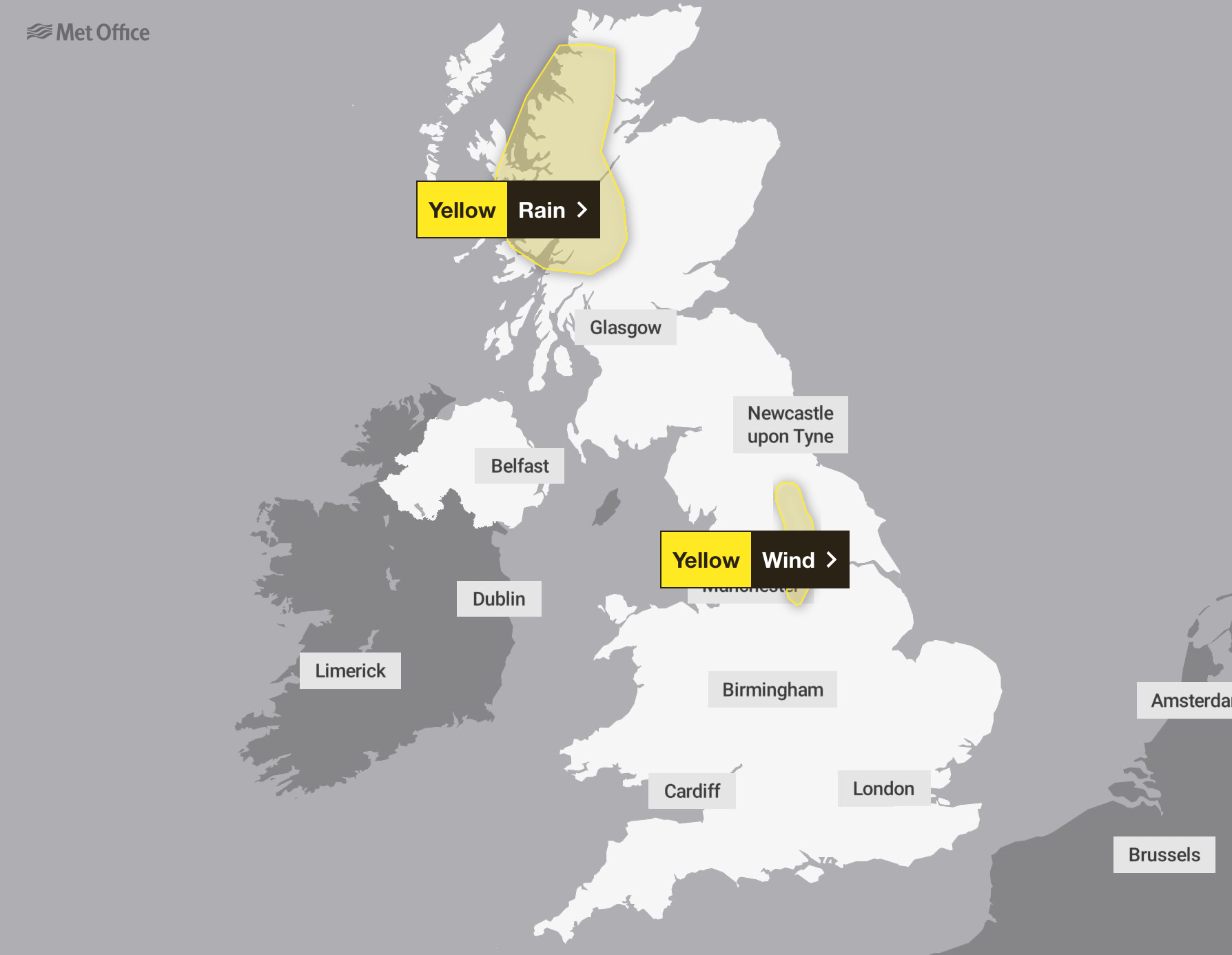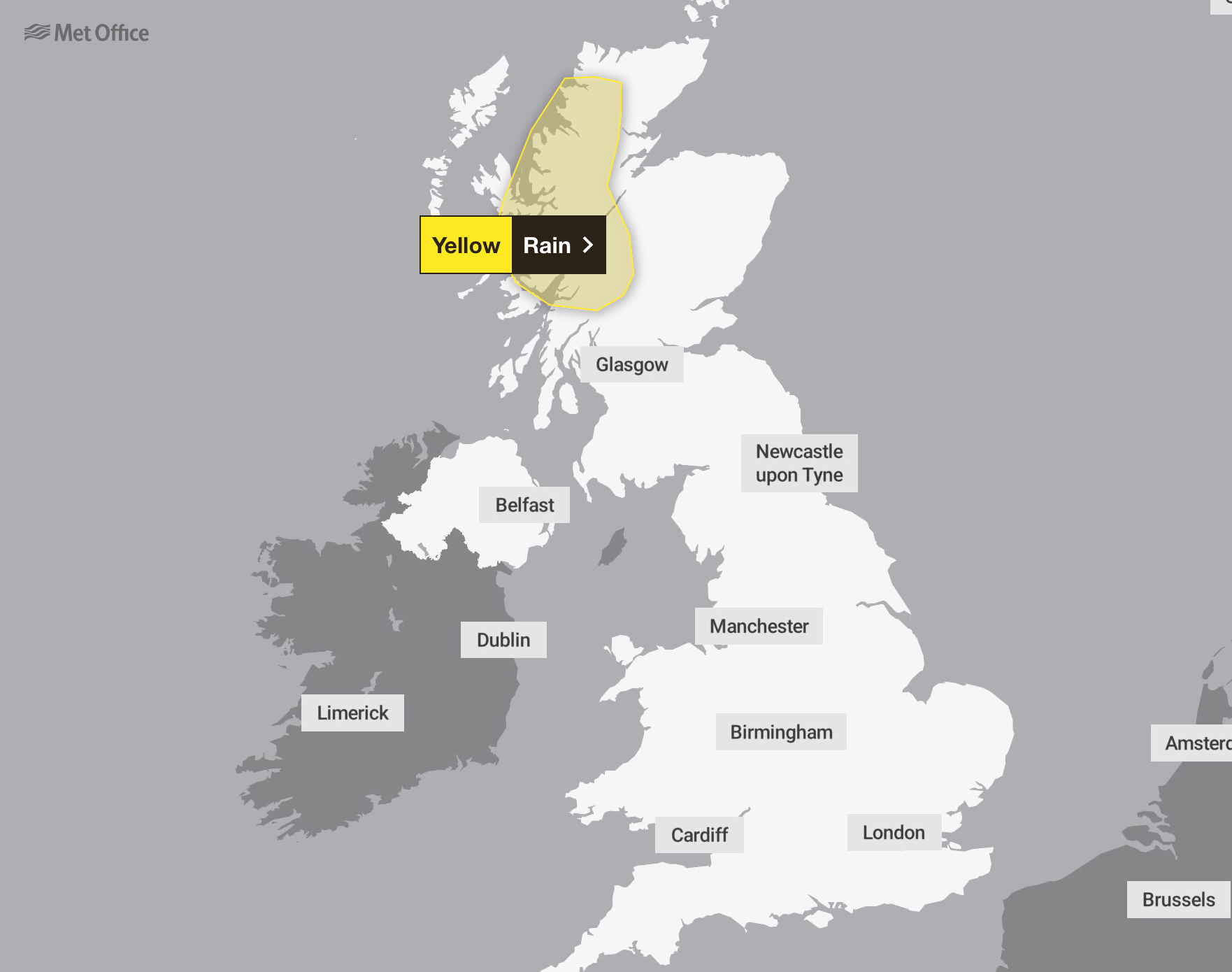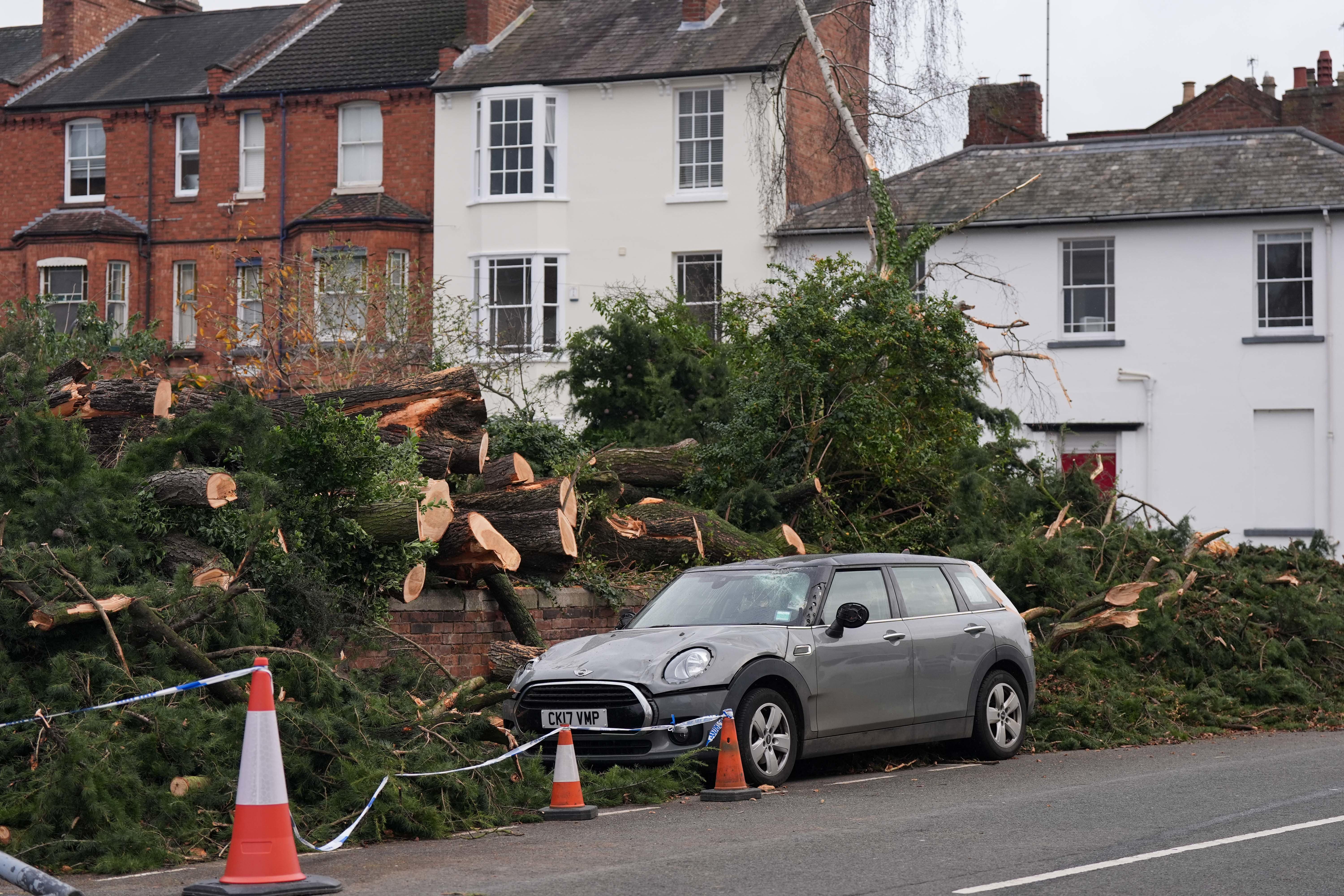UK braced for flooding and power cuts amid heavy rain
Parts of Yorkshire could also see wind of up to 65mph as the Met Office warned of flooding and power cuts

Your support helps us to tell the story
From reproductive rights to climate change to Big Tech, The Independent is on the ground when the story is developing. Whether it's investigating the financials of Elon Musk's pro-Trump PAC or producing our latest documentary, 'The A Word', which shines a light on the American women fighting for reproductive rights, we know how important it is to parse out the facts from the messaging.
At such a critical moment in US history, we need reporters on the ground. Your donation allows us to keep sending journalists to speak to both sides of the story.
The Independent is trusted by Americans across the entire political spectrum. And unlike many other quality news outlets, we choose not to lock Americans out of our reporting and analysis with paywalls. We believe quality journalism should be available to everyone, paid for by those who can afford it.
Your support makes all the difference.The UK is braced for flooding and power cuts as the Met Office warned of heavy rain and 65mph winds across the country.
The forecaster issued a yellow rain warning between 6pm on Sunday and 12pm on Tuesday across parts of northern Scotland including parts of the Highlands, Argyll and Bute and Perthshire.
It warned of flooding to homes and businesses, as well as the chance of power cuts and disruption to bus and train services.
A yellow wind warning was also put in place for Yorkshire which is in force between 12 noon and 5pm on Sunday.
Gusts of 45-55 mph are expected across parts of the county during the afternoon, while a few places may experience gusts of up to 65mph.

“Rain will become persistent across parts of western Scotland during Sunday, continuing throughout Monday before easing later on Tuesday,” the Met Office said.
“70-100 mm of rain is likely to fall widely during this period, but possibly over 150 mm for some exposed hills and mountains. Rapid melting of lying snow will also contribute to any potential impacts.”
Last week, Storm Darragh wreaked havoc across the UK, with two people killed, flights and trains cancelled and hundreds of thousands of homes left without power.
Winds of up to 96mph battered the country as the fourth named storm of the season caused major disruption, particularly in south Wales and western England, with the threat of more to come on Sunday.
A rare red warning for parts of Wales and southwest England came into effect on last Saturday morning at 1am, with the powerful winds resulting in a government “risk to life” alert issued to three million people.

It was the largest use of the system yet, with people urged to avoid driving and to “stay indoors if you can”.
British Airways cancelled more than 100 short-haul domestic and European flights from London Heathrow, including multiple flights to and from Paris, Edinburgh, Jersey, Milan, Nice and Vienna, while transatlantic flights from the US were diverted to Brussels.
A major incident was declared by Dyfed-Powys Police in Wales on Saturday evening, with the force receiving a huge number of calls about fallen trees and poor driving conditions. The storm also affected other parts of the country.
In Longton, near Preston, a man in his forties died after a tree fell onto his van on the A59 dual carriageway in Lancashire.
Join our commenting forum
Join thought-provoking conversations, follow other Independent readers and see their replies
Comments